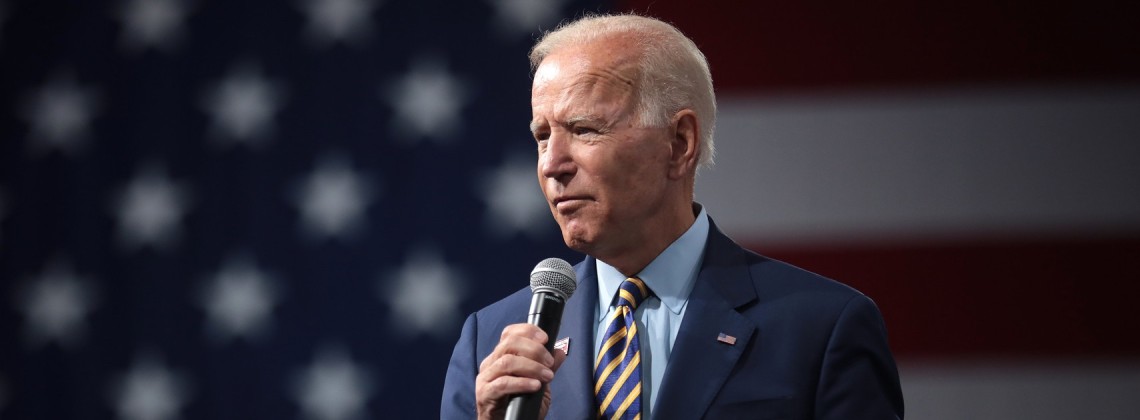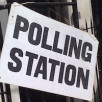
Patrick Flynn's 20 predictions for 2024
Patrick Flynn
10 January 2024
A new year is upon us, and what a 12 months it’s set to be. With a US presidential election and UK general election very likely to happen in the same calendar year for the first time since 1992, alongside elections in the EU, India, Russia, Ukraine and elsewhere, we are facing the largest election year in history. Outside politics, we’ve also got major events to look forward to including the 2024 Olympics, Euro 2024, the Oscars and a Eurovision Song Contest in which the UK could be competitive.
That brings me to my first prediction. In terms of trading volume, I’m confidently predicting that 2024 will be the biggest betting year for non-sporting markets in history (95% confidence).
Throughout this article, I will make a set of predictions for (mainly political) events of the year, and state my estimated likelihood of each happening to the nearest 5%. I asked for some suggestions on Twitter/X, and I’ve received some private messages, too, which I’ve combined with a few of the big questions I think people might be interested in.
Joe Biden will win the US presidential election (50%). I outlined my thinking on Biden back in October; not a great deal has changed since then. I’d still make him around 85% to win the nomination, and a narrow favourite to subsequently win the general election based on the current Republican state of play. On a related note, given the prominence of the election, it’s very likely TIME magazine will continue their tradition of awarding Person of the Year to the US presidential election winner, so I’ll also say Joe Biden will be TIME Person of the Year (40%).
The UK general election will take place in November (35%) / the final quarter of 2024 (80%)... In August, I noted how there was ‘no historical precedent for a government calling an early election from this far behind in the polls’. Despite an April-June 2024 election trading as short as 2.6 (38%) towards the end of last year, that prospect has since drifted, with Q4 2024 now reasserting itself at a 66% chance. That still looks too low to me. With Conservative Party conference in late September/early October, Sunak may use the platform to launch his party’s campaign, making an election some time in November the most likely outcome. 14 November might be considered too close to the US election (5 November) so I’ll go with the 21st.
… and Labour will win a majority of 50-100 seats (35%). Labour’s lead is around 18 points on average at the moment, which would result in a 200+ seat majority. However, there is still a substantial ‘don’t know’ gap in the polls based on past vote, with around a quarter of 2019 Conservative voters undecided right now compared to 10% of 2019 Labour voters. Most pollsters exclude these respondents when producing their headline figures, which inflates Labour’s lead. Firms like Opinium and More In Common, which assume those voters will still turn out at the election, tend to produce better mid-term estimates of future election results, and those two pollsters have recorded Labour leads of 12–16 points across their last five combined polls.
I’m expecting some of the typical poll narrowing by election day and a Labour win in the popular vote by a margin somewhere around 10 points. Add in some of the tactical voting we’ve seen in recent by-elections and we’d be looking at a Labour majority in the 50–100 seat territory.
Donald Trump will not win every state in the Republican presidential primaries (60%). I’ve been back and forth on this question, but I’m narrowly favouring no. My gut thinking is that Trump will win Iowa, then Nikki Haley will pull off a surprise win in New Hampshire before Trump goes on to sweep the rest of the board. Haley is currently 13 points behind Trump in the 538 New Hampshire average at time of writing, but there is a long-running pattern in presidential primaries of candidates who poll disproportionately well (or poorly) in particular states doing even better (or worse) than the polls suggested. Chris Christie is also polling third in New Hampshire in double digits. If he were to drop out, the majority of his voters would opt for Haley, so there is plenty of reason to believe the former South Carolina governor will fare better in the Granite State than current polling indicates. I want to stick with my gut instinct here.
If he wins the nomination, Donald Trump’s vice-presidential pick will not be a white man (90%), and will be under the age of 50 (55%). Trump opted for Mike Pence in 2016 in part to compensate for his relative weaknesses among evangelical voters and establishment conservatives in Washington. He’s now got both of those groups on board, so will be aiming to make up ground among his current weak demographics, so I’m expecting him to select a woman and/or person of colour. Picking a fairly young VP would also kill two birds with one stone: Trump will be able to juxtapose his younger ticket against Biden (whose age is a concern for many voters), while also getting a loyal VP who won’t rock the boat too much, instead playing the long game to set themself up to for a clear run at the Republican nomination in 2028. Vivek Ramaswamy and Tulsi Gabbard are a couple of the names I’ve been backing.
If he wins the nomination, Donald Trump will be on the ballot in all states in November (85%). With the US Supreme Court fast-tracking Trump’s appeal against the Colorado decision to remove him from their presidential ballots, it looks like the justices are keen to put an end to this debate early. With the court’s 6–3 conservative makeup, including three justices appointed by Trump himself and another whose wife was actively involved in attempts to overturn the 2020 election results, it’s likely that the court will rule in Trump’s favour.
The United Kingdom will win the 2024 Eurovision Song Contest (15%). I was going to go for a top five finish but I’ve got to have a low likelihood prediction somewhere, so here we are.
The last time the UK won Eurovision, the Conservatives were voted out of office in the same year after more than a decade in power. Could history repeat itself in 2024?
In terms of proven success and proximity to their career peak, the UK is sending its biggest Eurovision artist in decades this year in Olly Alexander (formerly of Years & Years). His selection is a clear statement of intent: after two decades in the wilderness in the 2000s and 2010s, the BBC has finally stepped up its game and is aiming for a Eurovision win in the next few years. Given the huge success of the contest in Liverpool this year, it looks like the BBC wants to bring the contest home as soon as possible and host in its own right following a long-awaited victory.
While I have a couple of concerns, these are mostly outweighed by other points in the entry’s favour, with the team behind it making me particularly bullish on the UK’s chances. The as-yet-unreleased track has been produced by Danny L Harle, one of the most exciting and talented producers in the music business right now, and someone who is finally reaching mainstream recognition. Harle co-wrote and co-produced Dua Lipa’s latest single ‘Houdini’, which has been a global hit, alongside producing one of the most critically-acclaimed albums of 2023 for Caroline Polachek. Given their track record of producing commercially-successful and well-reviewed music, the Harle-Alexander combo looks like a recipe for success.
France will win Euro 2024 (25%). This one was asked of me and I possess no expertise here so my answer is purely vibes-based. England are the market favourites but I’ve already got the UK winning Eurovision so I’m keen to temper my nationalism somewhat.
I’ve also selected a few questions from Rob Ford’s list, but my thoughts don’t really differ from his very much so I’ve kept this section brief:
Reform UK’s 2024 polling average will be higher than the 2023 average of 6.3% (75%). Richard Tice’s party is already polling in double figures with some pollsters, and with the potential return of Nigel Farage on the horizon, I can’t see any reason why their numbers would fall any time soon. Even if they do lose ground in a late-2024 election campaign, the party should have polled highly enough throughout the rest of the year to beat their 2023 average.
Labour will win the Wellingborough by-election (90%). The Conservatives picking the partner of disgraced MP Peter Bone to fight the seat is basically an admission of defeat from a party on its way out of government. Rishi Sunak wouldn’t even give his support for the candidate on Monday. This looks like a straightforward Labour gain.
Rishi Sunak will still be Conservative leader on Christmas Day (85%). Based on the timings of a general election and the length of the next Conservative leadership election, it’s pretty likely Sunak will still be in place at Christmas.
Reform UK will not do a deal with the Conservatives to stand down in any seats (90%). In 2019, the then Brexit Party wanted to take credit for the impending Conservative election victory by standing down in Conservative seats. I see no reason why they would want to tie themselves to a Tory anchor in 2024. Farage et al will be in a stronger position post-election if they stand candidates in every seat, racking up as many votes as possible and claiming influence on the Tory loss in a bid for an eventual party merge or a further Conservative lurch to the right.
And a few more for good measure…
The SNP will lose more than 20 seats at the UK general election (70%).
Reform UK will not win any seats at the UK general election (90%).
The Greens will win one seat at the UK general election (60%).
Oppenheimer will win Best Picture at the Oscars (80%).
Patrick Flynn
10 January 2024


